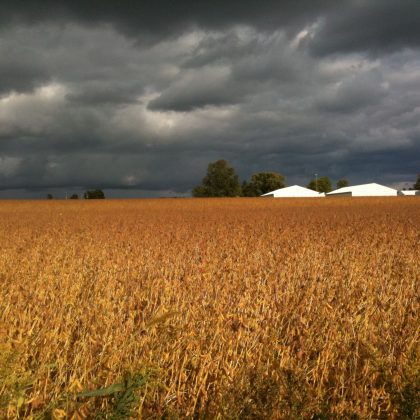It’s safe to eat that organic beef!
Integrating organic cropping systems with livestock production can provide multiple benefits, including improving soil carbon sequestration to help mitigate climate change challenges, and providing an additional revenue stream. When grazing cover crops, health benefits, such as a more balanced omega-6/3 fatty acid ratio, can also accrue in cattle and beef. Experiments where cattle grazed before and after crops in Iowa, Minnesota and Pennsylvania showed such systems performed well in keeping pathogens out of meat, according to a recently published study in Renewable Agriculture and Food Systems
Kathleen Delate, a professor of horticulture and agronomy at Iowa State University and one of the authors of the study, said that no traces of E. coli O157:H7, a bacterial strain that can cause severe illness in humans, or Salmonella spp. were detected on the meat produced in the experiments, and pathogens detected in feed, fecal and hide samples were below thresholds commonly detected in conventional production systems. The systems studied included two cropping sequences: pasture-winter wheat-soybean-pasture and pasture-winter rye/hairy vetch-corn-pasture. The cover crops of wheat and rye provided an early start to the grazing season, averaging three weeks earlier than other perennial pastures on the farm. Corn and soybeans were planted on the same acres the following year before the land was returned to grazing pasture and grain yields were equivalent to non-integrated systems.
“The integrated crop-livestock system in this study demonstrated a high probability of meeting food safety goals for limiting E. coli O157:H7 and Salmonella spp. contamination in the forage, feed, feces, hide and meat of grass-based organic cattle,” the study concluded. Following food safety protocols throughout production, processing and food preparation, however, are always important to ensure a safe food supply for the U.S.
The article Food safety considerations in integrated organic crop–livestock systems: prevalence of Salmonella spp. and E. coli O157:H7 in organically raised cattle and organic feed is available Open Access.






